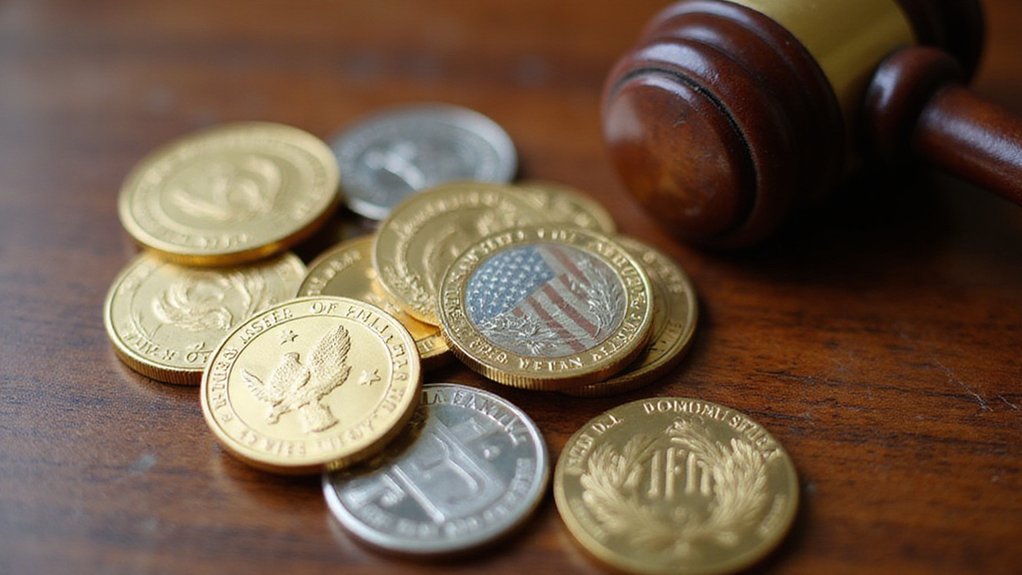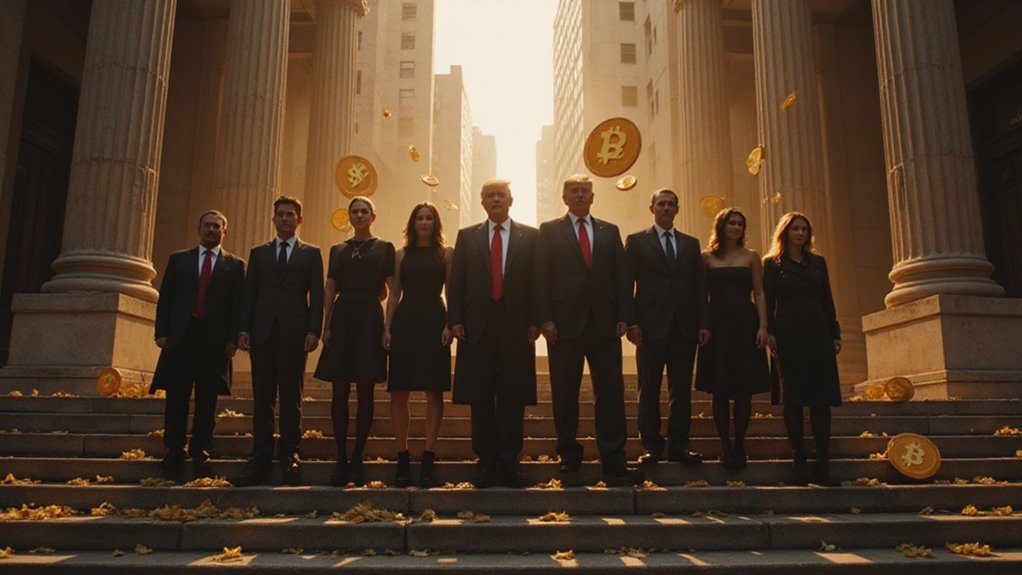President Trump has positioned himself as the unlikely champion of cryptocurrency‘s most mundane aspiration: buying coffee without triggering a taxable event. His administration’s support for a de minimis tax exemption on crypto transactions under $600 represents perhaps the most pragmatic policy shift in digital asset regulation—acknowledging that forcing Americans to calculate capital gains on their morning latte purchases borders on administrative sadism.
Calculating capital gains on coffee purchases transforms routine commerce into bureaucratic torture that would make tax attorneys weep.
White House Press Secretary Karoline Leavitt confirmed Trump’s openness to legislation establishing this exemption, which the administration views as essential for spurring wider cryptocurrency adoption in everyday commerce. The policy aims to transform digital assets from speculative instruments into functional payment methods, though one might wonder why it took this long to recognize that tracking tax obligations on micro-transactions creates more friction than a seized brake caliper.
This initiative coincides with Trump’s expected signing of the GENIUS Act, which provides regulatory frameworks for stablecoins while positioning America as the “crypto capital of the world.” The legislation enjoys sufficient congressional support and explicitly opposes central bank digital currencies—a stance Trump previously codified through executive order and now seeks to cement legislatively.
The administration’s broader crypto tax reforms extend beyond small transactions. Senator Cynthia Lummis introduced complementary legislation exempting transactions under $300 while modifying tax rules for mining and staking rewards. More ambitiously, Trump’s team discusses potentially eliminating capital gains taxes on cryptocurrencies entirely, with Eric Trump even suggesting exemptions for American-based tokens like Ripple and Cardano (though no formal legislative framework has materialized). Meanwhile, Trump has established a crypto task force dedicated to proposing new laws and regulations for the digital asset sector.
Perhaps most notably, Trump plans to modernize 401(k) retirement access by allowing cryptocurrency investments alongside traditional assets. This shift could release trillions in retirement fund assets, channeling institutional capital into crypto markets while acknowledging that limiting retirement portfolios to stocks and bonds increasingly resembles financial orthodoxy from the Eisenhower era. As mainstream adoption accelerates, regulated exchanges like CEX.IO have positioned themselves to serve the growing demand from both retail and institutional clients seeking compliant crypto trading platforms.
The convergence of these policies—from coffee purchases to retirement planning—suggests Trump recognizes cryptocurrency’s evolution from libertarian experiment to mainstream financial infrastructure, even if the regulatory apparatus remains perpetually behind the technological curve.









